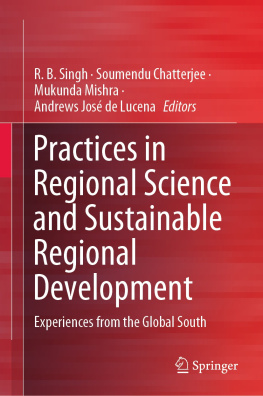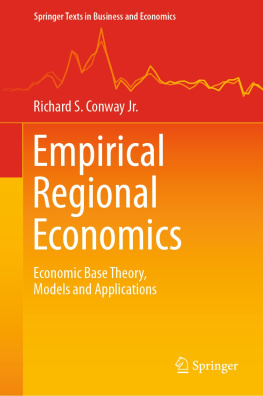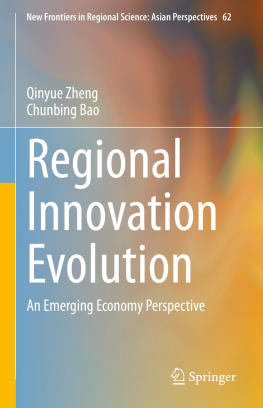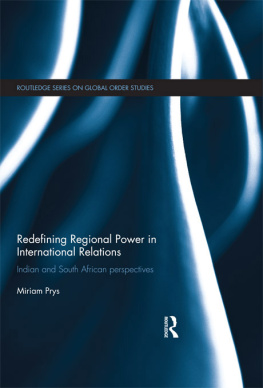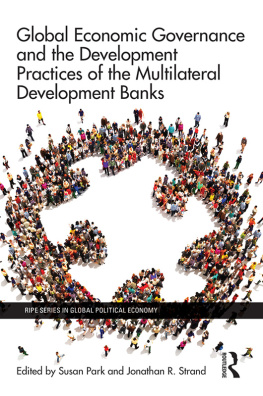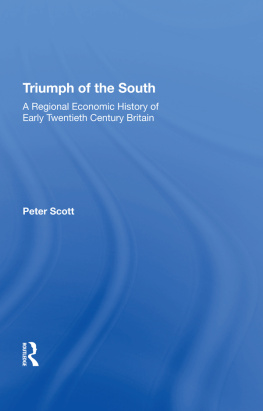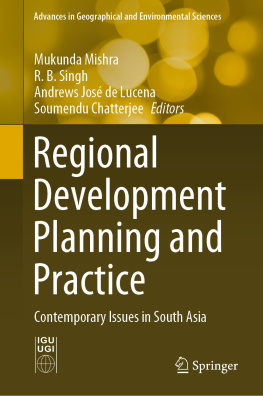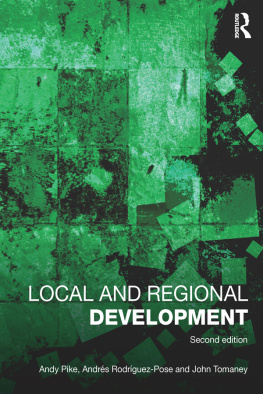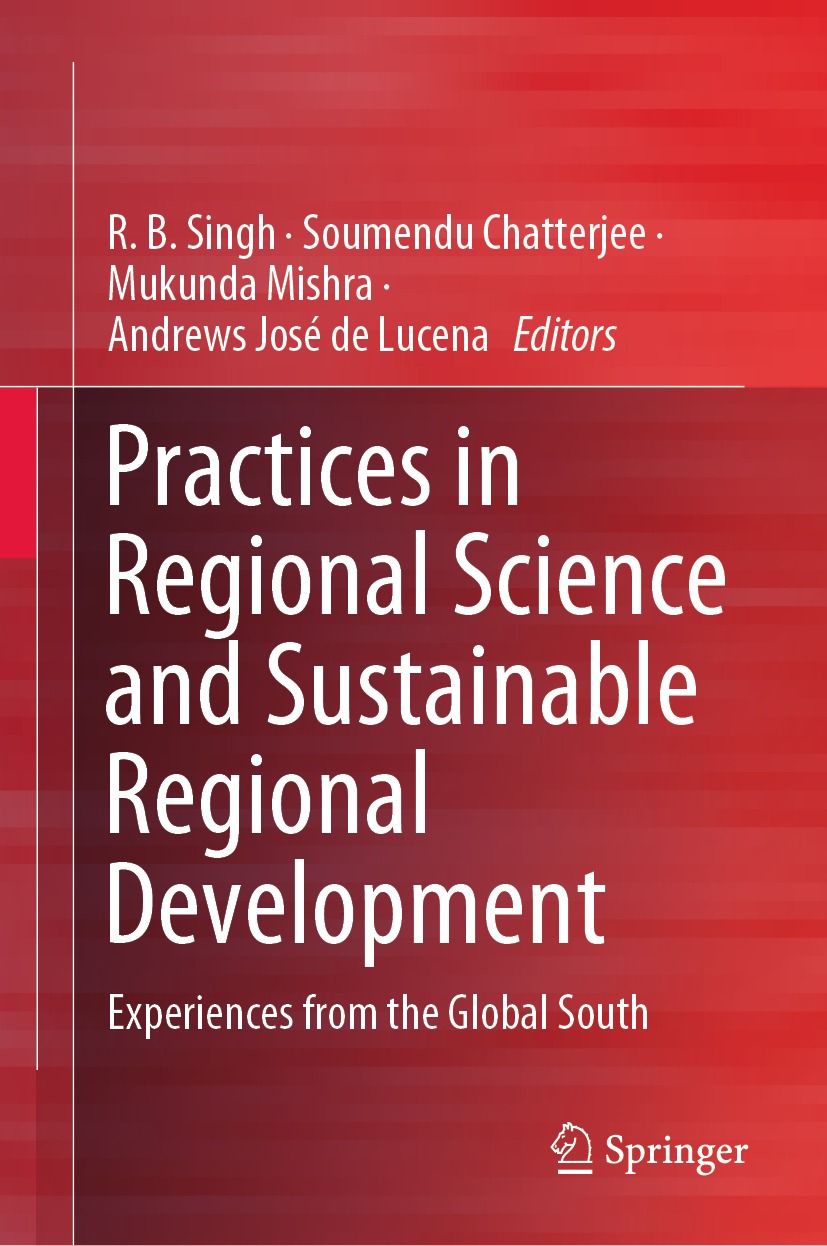Editors
R. B. Singh
Department of Geography, Delhi School of Economics, University of Delhi, Delhi, India
Soumendu Chatterjee
Department of Geography, Presidency University, Kolkata, West Bengal, India
Mukunda Mishra
Department of Geography, Dr. Meghnad Saha College, Itahar, West Bengal, India
Andrews Jos de Lucena
Department of Geography, Federal Rural University of Rio de Janeiro, Rio de Janeiro, Brazil
ISBN 978-981-16-2220-5 e-ISBN 978-981-16-2221-2
https://doi.org/10.1007/978-981-16-2221-2
The Editor(s) (if applicable) and The Author(s), under exclusive license to Springer Nature Singapore Pte Ltd. 2021
This work is subject to copyright. All rights are solely and exclusively licensed by the Publisher, whether the whole or part of the material is concerned, specifically the rights of translation, reprinting, reuse of illustrations, recitation, broadcasting, reproduction on microfilms or in any other physical way, and transmission or information storage and retrieval, electronic adaptation, computer software, or by similar or dissimilar methodology now known or hereafter developed.
The use of general descriptive names, registered names, trademarks, service marks, etc. in this publication does not imply, even in the absence of a specific statement, that such names are exempt from the relevant protective laws and regulations and therefore free for general use.
The publisher, the authors and the editors are safe to assume that the advice and information in this book are believed to be true and accurate at the date of publication. Neither the publisher nor the authors or the editors give a warranty, expressed or implied, with respect to the material contained herein or for any errors or omissions that may have been made. The publisher remains neutral with regard to jurisdictional claims in published maps and institutional affiliations.
Disclaimer: The authors of individual chapters are solely responsible for ideas, views, data, figures, and geographical boundaries presented in the respective chapters of this book, and these have not been endorsed, in any form, by the publisher, the editor, and the authors of forewords, preambles, or other chapters.
This Springer imprint is published by the registered company Springer Nature Singapore Pte Ltd.
The registered company address is: 152 Beach Road, #21-01/04 Gateway East, Singapore 189721, Singapore
Foreword
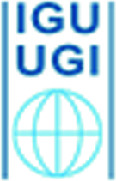
Regional Science has been developing as a science of the region, which enhances regional understanding and development along with the progress of its tools, methods, conceptual framework, and useful data/information. In recent years, it faces new challenges generated by the aggravation of climatic and other global problems and disasters related to them, which may widen the gaps between the haves and the have-nots globally, regionally, and locally. This book sheds light on the actual practices in Regional Science, which are intended to contribute to sustainable regional development, particularly in the Global South. It covers a wide range of contemporary hot issues related to Regional Science, including climatic and other environmental changes, human health, education, and the impact of COVID-19, in addition to more conventional themes such as regional imbalance, poverty, urbanization, and migration. The editors express their deep concern on the regional as well as a global climate change affecting regional society seriously in many parts of the world. They see the outbreak of COVID-19 not only as a health hazard but also as a long-term social, economic, and behavioral hazard. It is particularly notable that they emphasize the importance of the experiences in the Global South regions, which have difficult economic and societal situations to be overcome, and there is a lot to be learned from their experiences. I hope this book is read widely in the world by those who want to make regions more sustainable and contributes to the enhancement of global, regional, and local understanding for sustainability, with the aid of the evolving Regional Science.
Yukio Himiyama Emeritus Professor, Hokkaido University of Education; Past President, International Geographical Union; Member, Science Council of Japan
Hokkaido, Japan
February 2021
Preface
Regional Science aims to foster the exchange of ideas and promote studies focusing on the region and utilizing tools, methods, and theoretical frameworks designed for regional analysis, as well as concepts, procedures, and analytical techniques of the various social and other sciences. The efforts of Professor Walter Isard set the foundation stone of Regional Science during the 1960s. However, the first two decades in this millennium has been witnessing a series of events that calls for a serious review of the tools and techniques that could reinstall the Regional Science at the center of development planning. The 2008s Global Economic Crisis was a severe alert to the policy researchers and policymakers to speculate that the regional crises are often more important than the national crisis. The scholarly world witnessed that some regions, lagging severely in terms of economic and societal developments, need to see their economic base renewed, which inevitably require to involve all actorsnatural, economic, social, political, and educationto work together proactively.
The issues of climate change have stormed the laboratories of almost all fields of knowledge. A deep insight into the matter of how the regional version of deflected climatic parameters is excerpting impacts on regional society or economy to shape the human development of that region has become a relevant academic discourse throughout the globe. Above all, the pandemic outbreak of the novel COVID-19, spreading violently in almost all parts of the globe, is not only a severe health hazard, but it also brings to fore the long-term social, economic, and behavioral implications that mankind will be facing during the decades to come. All these things have been emerging as the newer research dimensions under the purview of Regional Science.
Alongside the needs, the principle methodological changes incorporated in the Regional Science have a significant concern. The statistical models, the geographic information systems (GIS), and the even broader area of geoinformatics, and the applications of big data to Regional Science, have become instrumental in analyzing the region and imbricating the development plans.
The use of the phrase Global South marks a shift from a central focus on development or cultural difference toward an emphasis on geopolitical relations of power. However, the most common things about the Global South nations are that they are mostly (not all) low-income and often politically or culturally marginalized. Besides, there is clear evidence of the uneven spatial distribution of resources, economic activities, literacy, and health condition that make the regional scientists inquisitive.

